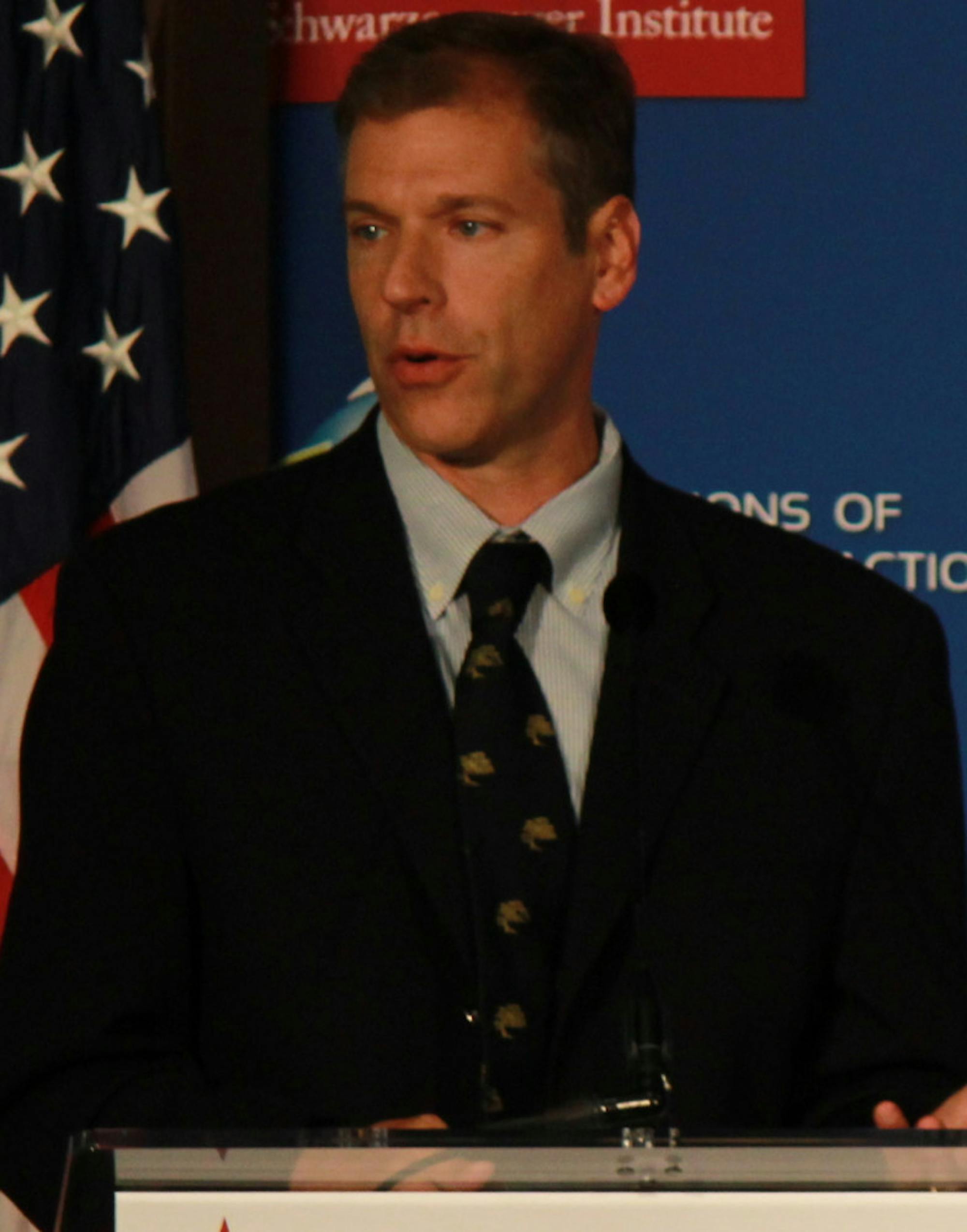Dan Kammen, senior advisor to the Biden administration on energy, climate and innovation, spoke about the evolution of international climate policy at an event sponsored by the International Relations Program on Wednesday.
Titled “Energy Innovation, Climate Change and Environmental Justice,” the event was sponsored by the International Relations Program, the Department of Political Science and the Environmental Studies Program as part of Tufts Global Month.
Kelly Greenhill, a professor of political science, introduced Kammen.
“Dan has been a member of the Intergovernmental Panel on Climate Change since 1999,” Greenhill said. “The IPCC, as many of you are aware, was co-awarded the 2007 Nobel Peace Prize. Dan previously served as science envoy for President Obama and the U.S. State Department, where he ultimately resigned in 2017 in protest of Trump administration policies.”
Kammen recounted the events following the Paris Climate Accords in 2015. He emphasized the urgency with which nations at the conference had to commit to reducing emissions and how quickly those commitments dissipated.
“Just to put it in context, 4 ½ degrees of global temperature rise on average by 2100 would be more than 20 degrees at the poles,” Kammen said. “And what that means is that Antarctica is now quite barren. It means that Greenland now looks like a big rock … and all that water is now part of the ocean.”
Kammen described the dynamic between the United States and China’s climate policies and how cooperation is necessary to make any significant inroads in reducing carbon pollution.
“China, the biggest user of coal and the biggest funder of coal around the planet, has said … at the opening of the U.N. General Assembly in September that they would no longer fund overseas coal projects,” Kammen said. “That’s great, [but] the real statement needs to be that China will stop financing fossil fuels around the planet, and [the U.S.] needs to say the same thing.”
In addition to his roles in federal climate policy shaping and professorship at University of California, Berkeley, Kammen gained national attention from his resignation letter under the Trump administration. The first letter of each paragraph spelled out the word ‘impeach.’ Kammen resigned due to former President Trump’s failure to denounce neo-Nazis after the deadly 2017 white supremacist rally in Charlottesville.
Although general prospects for a global shift towards carbon neutrality are slim in the short term, certain states like California have achieved some climate change goals.
“California passed a law saying that [their] energy had to be 20% renewable energy by 2010,” Kamen, who is a resident of California, said. “We missed that goal. … We threw a party when we missed [it] in 2010. We threw a bigger party when we made it three years late. And our goal for 2020 was to be one third powered by renewables. … California met our 2020 goal four years early, meaning between 2013 and 2016, we jumped to this 33% level [of clean energy].”
Kammen stressed the importance of environmental justice as increasingly marginalized communities are left out of the climate equation.
He also described a partnership with Google that used their national survey to look at rooftops and determine who did and did not have solar panels. What they found was that minority populations are overlooked by sustainable energy policies in the U.S.
“If you look at communities that are Hispanic or African-American majority, they’re 50% less likely to have solar [energy], and it gets worse,” he said.
One student attending the talk asked if policies at the local level can take the initiative oftentimes lacking at the international level.
Kammen looked toward recent developments in Boston as a key example.
“The new plans that are evolving for Boston under Mayor Wu are a remarkable set of taking advantage of investing in low-income communities and solarizing neighborhoods and encouraging the adoption of not only solar panels on rooftops but also, when homes are built, [energy storage],” Kammen said.






